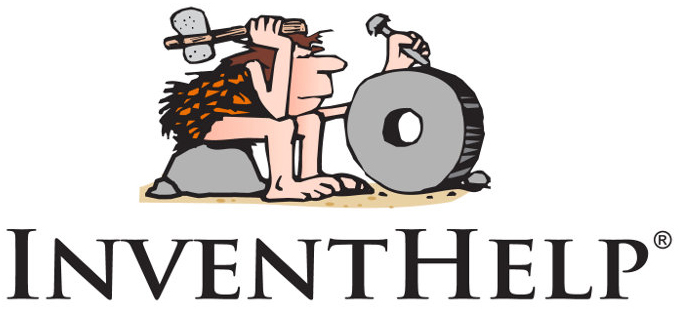You”™ve probably seen the cartoon caveman about to chisel a stone wheel on InventHelp”™s late night TV advertisements.
Julie Zanotti of Putnam Valley and Ronese Brooks of Yonkers saw the ads and were inspired to submit their invention ideas. But now the would-be inventors say it was they who were chiseled.

They claim that InventHelp bilked them and many others into paying millions of dollars for invention promotion services that were not provided. They are demanding $36 million in damages in a class-action lawsuit filed on Jan. 25 in Westchester Supreme Court. They are being represented by Julie Pecherski Plitt of Oxman Law Group in White Plains.
InventHelp did not respond to a request for comment.
The Pittsburgh company”™s website promotes itself as the “honest invention company.”
“Our approach is straightforward and does not mislead or misinform,” the company states. “This is what separates us from unscrupulous, double-talking organizations who profess to ”˜help”™ inventors.”
The women describe themselves as naïve, aspiring inventors who were lured by slick TV and internet advertisements, assured that their ideas were unique, told that their inventions were potentially lucrative and offered the means to making their ideas real.
They claim they were strung along by a series of seemingly independent entities that were actually acting in concert, including promotion companies, a money lender, patent attorneys, licensing companies, manufacturers and distribution companies.
The web of companies “created the impression that they have successfully helped other inventors, and thus that they are reliable and reputable,” the complaint states. “In truth and in fact, defendants fail to fulfill almost every promise they make to consumers.”
Zanotti, a hair stylist, came up with an idea she called the Liqui Comb, where a styling solution could be put in a hollow chamber and distributed evenly on hair through the comb”™s teeth.
She saw the caveman spots on TV in 2014, called InventHelp and was referred to the Invents Co. affiliate in Iselin, New Jersey. She claims she was told that her idea was novel and had an excellent opportunity for profit and that Invents would partner with her for $7,950.
When she said she could not afford the fee, she was referred to Innovation Credit Corp. in Manhattan. She claims Invents told her she could get an interest-free loan, but the loan she got carried an annual interest rate of 18 percent.
Zanotti alleges that Invents agreed to “commercialize” her concept with press releases, a web page, infomercial, airtime in major markets and contacts with manufacturers; but the services were not provided.
She was referred to a Florida attorney who charged $4,490 to obtain a patent. But her idea could not be patented, she said, because several companies already make and sell similar products.
Then Invents told her that Zambro Manufacturing in Milwaukee was interested in the Liqui Comb. She signed a manufacturing and licensing agreement and agreed to a $2,000 down payment that was charged to her credit card by Global Express Manufacturing of Milwaukee.
Zambro and Global, she alleges, are sham companies.
Ronese Brooks tells a similar story about her concept of eyeglasses with detachable and adjustable arms.
She met with an Invents representative in the Manhattan office in 2016. She claims she was told that her idea was worth “billions.” The representative left the room to conduct a “feasibility study.” When he returned, he allegedly said her invention had scored 93 percent because it was unique, easy to produce and would realize huge profits. In all his years with Invents, he allegedly said, only one other product had received a feasibility score greater than 90 percent.
Brooks said she was overjoyed. She paid $595 for an initial patent search and project summary, and Invents, she said, told her there were no similar patents.
Invents offered to do business with her for $10,000. She asked for time to review the agreement with an attorney, she claims, but the representative told her she would lose a $1,050 discount for doing so. She signed and paid $8,950 for promotion and marketing services.
She claims the work was not done.
Then she was referred to an Arizona patent consulting company. But her invention was not patentable, she discovered, because similar products were already on the market.
For months, Brooks said, Invents did not respond to her phone calls. Then Global Express offered to manufacture her invention for $5,000.
Brooks had become suspicious and declined the offer. In all, she paid $12,000 for services that she claims were not provided.
InventHelp claims to be the largest invention submission company in the country and perhaps in the world.
It is part of the Invention Submission Corp. and shares the same address in Pittsburgh with Technosystems Service Corp. Technosystems Consolidated Corp. and Western Invention Submission Corp. Robert J. Susa is president of the companies. The lawsuit also names Invents, Innovation Credit, three purported manufacturing companies and two patent attorney firms.
The women accuse the defendants of fraud, breach of contract, false advertising, violation of consumer protection laws, dealing in bad faith, unjust enrichment and conspiracy. The patent attorney and patent consultant are accused of breach of fiduciary duty.
Invention firms are required by federal law to disclose their success rates.
From 2015 to 2017, InventHelp states on its website, 6,564 clients have signed agreements, 166 have received license agreements and 49 clients, or 0.7 percent, have received more money than they paid the company for services.
It makes no promises, implies no likelihood of success, is upfront about fees, and does not evaluate inventions, its website states.
The invention game is a “high-risk endeavor,” InventHelp says, and “very few inventions make money.”
“Unfortunately,” the company says, “there are a number of fraudulent service providers who will tell you otherwise.”
